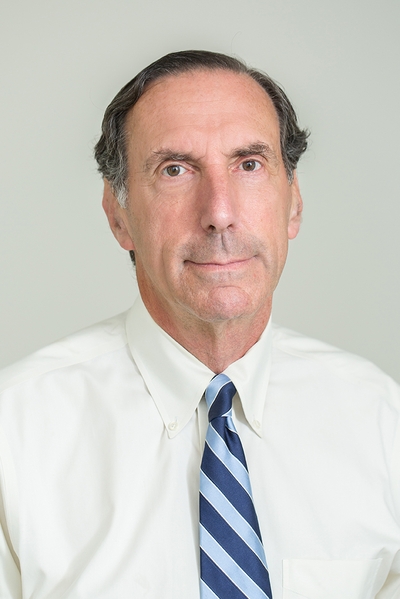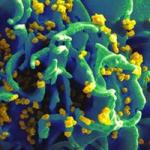
Research Topics
Dr. Masur was recruited to NIH to jointly found a new department of critical care medicine, and an HIV/AIDS program with NIAID. He became Chief of the Critical Care Medicine Department in 1989. During the past 20 years the department has attained national and international acclaim for its leadership in areas of sepsis, emerging infections, HIV/AIDS, lung biology, and sickle cell disease, and has developed a highly competitive, highly sought training program in critical care medicine which permits candidates to train in pulmonary medicine, infectious diseases, or cardiology as a second subspecialty. The department also has expanded its clinical services and serves as a pivotal component of the NIH Clinical Center which cares for patients with complex medical disorders. Dr. Masur is well known for his expertise in HIV-related opportunistic infections. His department has published many pivotal studies related in particular to pneumocystis pneumonia. He is the co-editor of the NIH-CDC-IDSA Guidelines for Management of Opportunistic Infections in Adults and Adolescents with HIV Infections, co-editor of the textbook AIDS Therapy, and past president of the Infectious Diseases Society of America. He is also well known in the field of critical care related to infectious diseases, and is the co-chair of IDSA-SCCM Guidelines on Prevention of Intravenous Catheter infections and Evaluation of Fever in the ICU. Dr. Masur leads the District of Columbia Partnership for AIDS Progress, a unique collaboration between NIH and the DC government that aims to create an urban model for decreasing the impact of HIV/AIDS on underserved populations. The program is focusing on HCV-HIV co-infection, mental health issues, and improving access and adherence to appropriate therapies. He is also active in the NIAID Project Phidisa, which works in South Africa with the National Defense Force to study HIV related therapies.
Biography
Henry Masur earned his undergraduate degree from Dartmouth College and his medical degree from Cornell University Medical College. He completed his internship and residency in internal medicine at New York Hospital and Johns Hopkins Hospital. Following a fellowship at Cornell in the Division of Infectious Diseases and Internal Medicine, he served as an Instructor and Assistant Professor of Medicine in the Infectious Diseases Division at Cornell from 1978 to 1982.
Dr. Masur was recruited to NIH to jointly found a new department of critical care medicine and an HIV/AIDS program with NIAID. He became Chief of the Critical Care Medicine Department in 1989. During the past 20 years the department has attained national and international acclaim for its leadership in areas of sepsis, emerging infections, HIV/AIDS, lung biology and sickle cell disease. The department has developed a highly competitive, highly sought training program in critical care medicine which permits candidates to train in pulmonary medicine, infectious diseases, or cardiology as a second subspecialty. The department also has expanded its clinical services and serves as a pivotal component of the NIH Clinical Center which cares for patients with complex medical disorders.
Dr. Masur is well known for his expertise in HIV-related opportunistic infections. His department has published many pivotal studies related in particular to pneumocystis pneumonia. He is the co-editor of the NIH-CDC-IDSA Guidelines for Management of Opportunistic Infections in Adults and Adolescents with HIV Infections, Co-Editor of the textbook AIDS Therapy, and is Past President, Infectious Diseases Society of America. He is also well known in the field of critical care related to infectious diseases, and is the co-chair of IDSA-SCCM Guidelines on Prevention of Intravenous Catheter infections and Evaluation of Fever in the ICU.
Dr. Masur leads the District of Columbia Partnership for AIDS Progress, a unique collaboration between NIH and the DC government which aims to create an urban model for decreasing the impact of HIV/AIDS on underserved populations. The program is focusing on HCV-HIV co-infection, mental health issues, and improving access and adherence to appropriate therapies.
Dr. Masur is Clinical Professor of Medicine at George Washington University and holds appointments at the University of Maryland and the Washington Hospital Center as well.
Honors and Awards
John Phillips Award, American College of Physicians, 2010; Feder lectureship, Weill Cornell Medical College, 2008; Infectious Diseases Society of America, 2002-2008; (Council 2001-2004, Vice President 2004-2005, President Elect 2005-2006, President 2006-2007, Past President 2007-2008); Zucker Family Lectureship, Weill College of Medicine, Cornell University; 2003; Astute Clinician Lecture, National Institutes of Health, 2002; Kirby Lectureship, University of Washington, 2002; Taubin Memorial Lectureship, Children's National Medical Center, 2002; International Association of Physicians in AIDS Care Hero Award (41 named internationally), 2000; American Society for Clinical Investigation; Association of American Physicians
Selected Publications
- Segarra L, Simmens SJ, Castel AD, Kharfen M, Masur H, Greenberg AE. Highly variable trends in rates of newly diagnosed HIV cases in U.S. hotspots, 2008-2017. PLoS One. 2021;16(4):e0250179.
- Hill K, Nussdorf L, Mount JD, Silk R, Gross C, Sternberg D, Bijole P, Jones M, Kier R, Mccullough D, Mathur P, Kottilil S, Masur H, Kattakuzhy S, Rosenthal ES. Initiation of Low-threshold Buprenorphine in Nontreatment Seeking Patients With Opioid Use Disorder Engaged in Hepatitis C Treatment. J Addict Med. 2022;16(1):10-17.
- Orr C, Masur H, Kottilil S, Meissner EG. Hepatitis C Virus Relapse After Ultrashort Direct-Acting Antiviral Therapy Associates With Expression of Genes Involved With Natural Killer-Cell and CD8(+) T-Cell Function. Open Forum Infect Dis. 2021;8(4):ofab118.
- Rosenthal ES, Brokus C, Sun J, Carpenter JE, Catalanotti J, Eaton EF, Steck AR, Kuo I, Burkholder GA, Akselrod H, McGonigle K, Moran T, Mai W, Notis M, Del Rio C, Greenberg A, Saag MS, Kottilil S, Masur H, Kattakuzhy S. Undertreatment of opioid use disorder in patients hospitalized with injection drug use-associated infections. AIDS. 2023;37(12):1799-1809.
- Kuriakose S, Singh K, Pau AK, Daar E, Gandhi R, Tebas P, Evans L, Gulick RM, Lane HC, Masur H, NIH COVID-19 Treatment Guidelines Panel, Aberg JA, Adimora AA, Baker J, Kreuziger LB, Bedimo R, Belperio PS, Cantrill SV, Coopersmith CM, Davis SL, Dzierba AL, Gallagher JJ, Glidden DV, Grund B, Hardy EJ, Hinkson C, Hughes BL, Johnson S, Keller MJ, Kim AY, Lennox JL, Levy MM, Li JZ, Martin GS, Naggie S, Pavia AT, Seam N, Simpson SQ, Swindells S, Tien P, Waghmare AA, Wilson KC, Yazdany J, Zachariah P, Campbell DM, Harrison C, Burgess T, Francis J, Sheikh V, Uyeki TM, Walker R, Brooks JT, Ortiz LB, Davey RT Jr, Doepel LK, Eisinger RW, Han A, Higgs ES, Nason MC, Crew P, Lerner AM, Lund C, Worthington C. Developing Treatment Guidelines During a Pandemic Health Crisis: Lessons Learned From COVID-19. Ann Intern Med. 2021;174(8):1151-1158.
Related Scientific Focus Areas

Microbiology and Infectious Diseases
View additional Principal Investigators in Microbiology and Infectious Diseases




This page was last updated on Tuesday, July 30, 2024